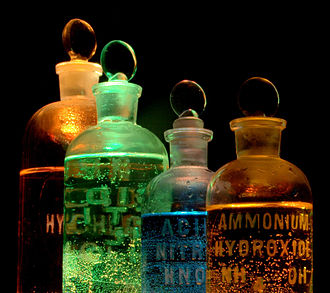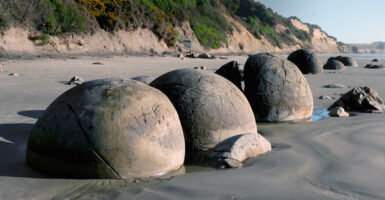Chemistry: Creative Resources to Learn and Master the Concepts
Confused about Chemistry?
Chemistry is a very broad term that includes many specific areas. Chances are high that you might be lost while learning a few concepts. There is so much information! Bond types, naming compounds, stoicheometry calculations, not to mention tons of formulas to memorize.
To graduate High School, students are usually required to take at least one year of Physical Chemistry. Of course, many decide to go on to take AP/IB Chemistry or college-level courses. It does not matter when you take the class. What matters is having a list of resources to make the learning process easy. If you are taking Chemistry, check out the detailed list below and get the grade you want. Don’t study hard. Study smart!

First Year Chemistry Students: The Must-Haves
1. A detailed and easy to read Periodic Table
Don’t attempt to go to Chemistry or do your homework without a Periodic Table or Reference Sheet. You could, but why make it more difficult on yourself? Absolutely use any references that are in your textbook or provided by a teacher, but don’t stop there. If they are difficult to read or missing information, ask your teacher if it is possible to use a different one. Remember, what matters it that these resources work for you.
The Periodic Table
What is a good example of an easy to read Periodic Table?
The best are colorful, full of details, organized well and interactive. Almost everything you would ever want to know about an element is listed. This resource also provides properties, orbitals, isotopes and compounds. The online version may not be allowed on exams, but you can print out a copy here. Check with your teacher and see if you can use it on an exam.
The Amazing Reference Sheet
What should be on a Reference Sheet?
Most Chemistry teachers will provide a reference sheet that will be permitted in class and for exams. You may find it looks very similar to the the link above. An amazing reference sheet has details you don’t know yet or may be more likely to forget. Over time, you will become more familiar with the formulas, trends, definitions and variables, but until then, save yourself a headache and use it! Ask your teacher if you can use a different option or create a new reference sheet all together. At the very least, make sure it has common constants, unit conversions, formulas, polyatomic ions, solubility rules and melting/boiling points for basic compounds.
General Chemistry

In General Chemistry there is a list of common topics most classes must cover during the year. Below is a list of the common topics and where you can get additional help.
Where can I get help with Stoichiometry?
This can be a very difficult concept to grasp at first. We do dimensional analysis almost everyday, but most of us rarely use moles and grams. Ever think to yourself, “I have x amount of gas left in my car, so I can get back home.”? You just did Stoichiometry without even realizing it! If you are a visual learner, check out this step-by-step guide. Those examples will look very similar to homework problems. One of the best ways to learn is by checking over your answer. If you know a mistake was made, then you can fix it. This fantastic Stoichiometry calculator allows you to enter a balanced equation and see how many grams or moles are reacted/produced.
Naming compounds is really confusing. Is there an easier way?
There are so many rules for naming compounds. Most textbooks devote an entire chapter to review them all. No wonder why we are all confused at first. This will not be the only topic that has a large number of rules to remember. You can make it easier by seeing the information in different ways. For visual learners, check out this flow chart. Simply answer the questions yes or no and get the exact steps to name the compound. Another example can be found here. So much easier!
Additional Study Materials
What are some other sites that have notes or study materials?
Notes have already been taken on all of these subjects. Save your time and energy. Use these to supplement your textbook and teacher’s classroom notes.
1. ChemTeam
Click on the topic you are covering in your class, play around with the interactive materials and see tons of example problems.
A free resource for students and teachers. Very similar to the Khan Academy, but presents the material in many different ways. If you like to watch movies, this will be a site to use.
Organic Chemistry
Organic Chemistry (O-Chem), can put students over the edge. Why? At this point, a student has already learned the basics, but there are hundreds of topics to learn. No worries! All it takes is figuring out what works and what doesn’t work for you. Then add “what works” into your study routine.
A resource that is highly recommended. One of my personal favorites. The list of topics makes it easy to search and find extra materials. Perhaps the best part is the database of practice problems. Teachers and professors do use similar problems on homework and tests so this is the perfect way to practice.
2. Free MIT open Courseware (Exams and lectures)
Sometimes you may miss class or not understand what was covered. If you have a way to review, then you won’t get behind. This is a completely free full Organic Chemistry series.
It is extremely helpful to find practice exams with answers to check your work. ASU’s Organic Chemistry Professor, Ian Gould, has many valuable resources so check out more here.

AP or IB Chemistry
Those of you who are taking an AP or IB level Chemistry class need a little bit more. The IB program requires a certain amount of hours per topic and many students are trying to prepare for exams. These additional resources will help you prepare. Make sure to all the resources available to you. Teachers usually have classroom websites and provide additional resources there as well.
Are there any specific resources for AP/IB Chemistry?
Absolutely! Over the last decade, the demand for these specific classes has increased. There is not enough space to include all of them, but the ones listed will get you started.
This list is comprehensive and helpful when you are just starting out in the class or preparing for exams.
A site that is organized well and has tons of notes and power point presentations. The best part is that it also includes examples of IB labs, papers and exams.
3. NMSI AP Chem
Another place to find detailed notes, practice problems, videos and even a calculator help page.
Know When to Get Extra Help
We all have times where we get stuck and need a little extra help. Reach out and get it! Most High Schools and Colleges offer tutoring for students, but if not, find an alternative that might work better for you. Good luck in your Chemistry class!



